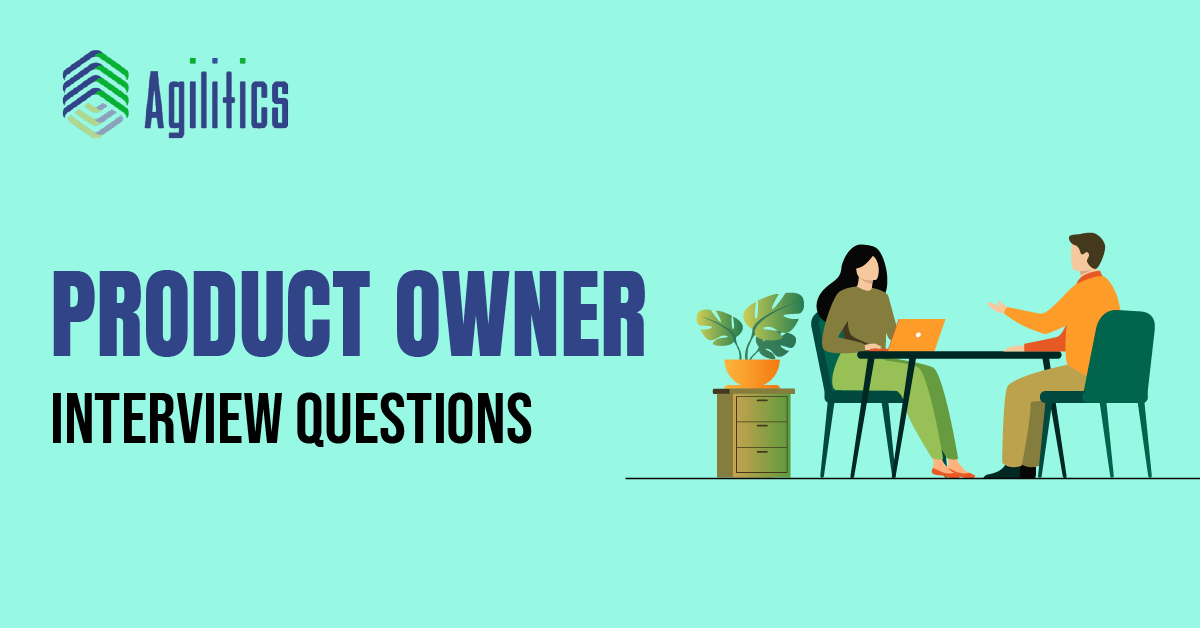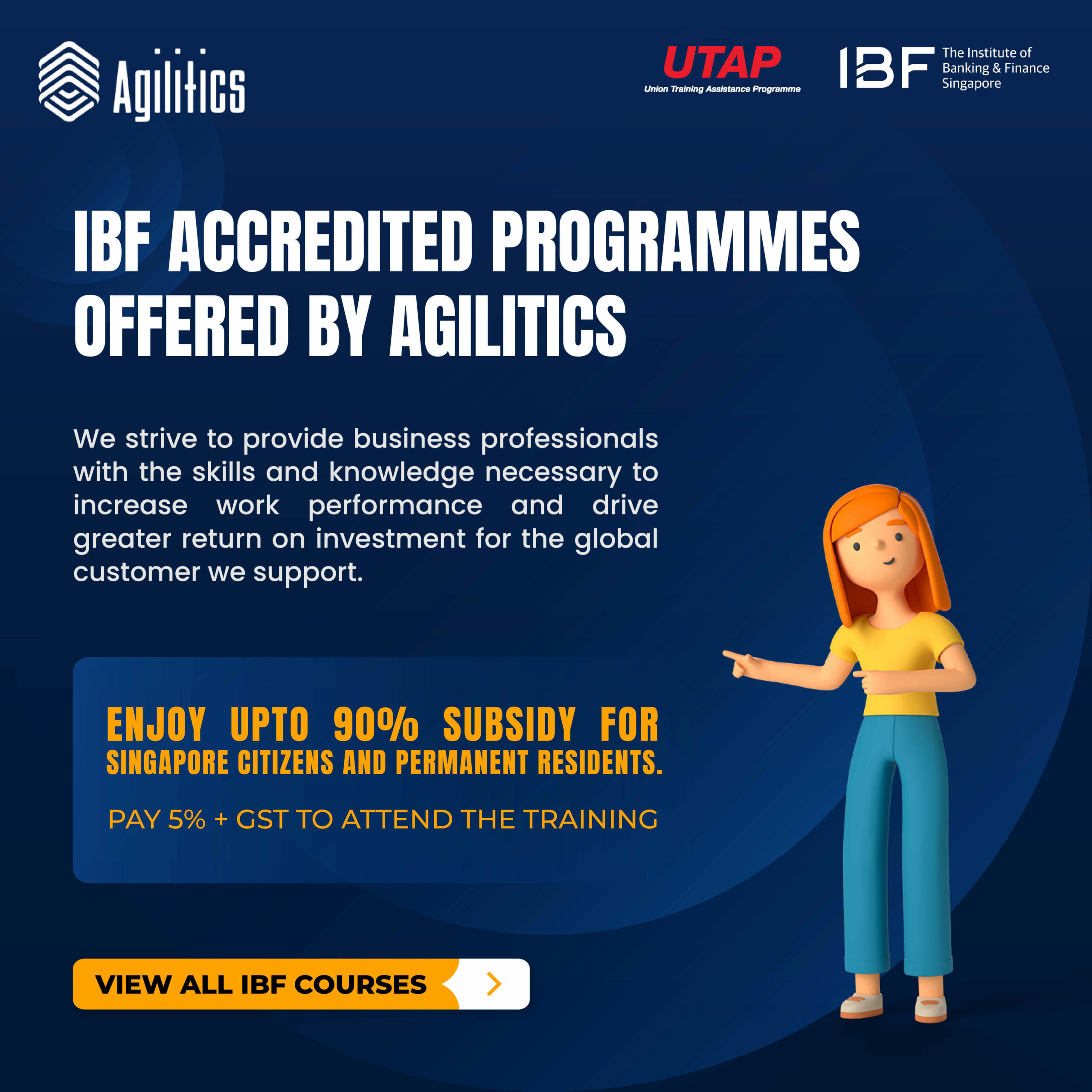Have trouble cracking the Product Owner Interview? If yes, do not fret. We are here to help you.
Attending a job interview for the position of product owner might certainly be difficult. Interviewers want to hire someone who is qualified and will also fit in well with their company.
A list of the most crucial and typical questions asked during a product owner interview is listed below to help crack the interview and bag your dream job.
1. Briefly describe the regular activities that you will perform as a product owner.
This is one of the initial questions that helps the interviewee open up while also giving the interviewer a chance to gauge the candidate’s level of exposure.
Sprint Planning, Sprint Review, Sprint Retrospective, and Grooming are the typical answers, though they may differ slightly from candidate to candidate. Also, one may want to include managing and describing the Product Backlog that includes the epics, features, and user stories.
2. What would a typical work week look like if you were holding a product owner position?
A few tasks that a product owner is expected to fulfill are:
- They must engage in a number of activities, speak with stakeholders, conduct research, etc.
- They should show up for any meetings the team has for pre-planning, planning, or other scrum ceremonies.
- It is necessary to invest a lot of time speaking with different stakeholders to understand their issues and line of work if they are to ensure that their participation at these meetings delivers value.
- In addition to all of this, the product owner must maintain a balanced and prioritized backlog.
3. What do you expect from this job as a product owner?
This query is meant to be one that allows you to give a general outline of your experience. It would demonstrate the candidate’s level of interview readiness and subject-matter expertise.
The response to this question will vary depending on the sector, business, and goods. There are some similarities, nevertheless, that interviewers search for.
With this answer, the recruiter can gauge if the prospect has the necessary skills and experience if they mention pursuits like sprint planning, sprint retrospective, grooming, and sprint review.
4. What’s the difference between product owners and product managers?
This question helps interviewers know how familiar the candidate is with the tasks a product owner should perform in contrast with those of a product manager, even when both roles are product strategists in essence.
Product managers oversee the entire product and its lifecycle, from conception to production. Product owners, however, are responsible for strategizing about what should be built next in order to meet customer needs and company goals.
In many organizations, this is not a problem because there are separate teams with one person leading each team-but it can become an issue if you don’t provide enough resources or lines of communication between them.
5. Do you believe it makes sense for one individual to serve as both the Scrum Master and the Scrum Product Owner?
For interviewers, it is crucial to find out how well the candidate comprehends the complete product development process. The greatest way to assess your comprehension of their function in comparison to other roles is to ask you this question.
The response ought to be “No,” unless you have a genuinely compelling justification. Product owners and scrum masters have distinct roles, and combining them would never be good for the development process.
The Scrum Master serves as a liaison between the development team and the product owner. Therefore, there would be a conflict of interest if the same person performed both tasks.
6. Among all the stakeholders in a product, who do you believe is the most significant?
As part of your job, It is vital for you to comprehend the external stakeholders in order to design the product appropriately.
There are many important stakeholders in the product development process. Among them are:
- Customers
- Regulators
- Professionals
- Sponsors
- Key decision-makers
The prospective product owner needs to comprehend how influential each stakeholder is to the process and why it’s necessary to work with them all. Additionally, it is advantageous if you can describe the contributions made by each stakeholder to the process.
7. How would you handle stakeholders who are not cooperative?
Finding out how the product owner handles issues and obstacles is a crucial step in comprehending their process. Product owners frequently deal with resistant stakeholders, which slows down the discovery process.
Product owners must always be diplomatic even though everyone handles these hiccups in their own way. The solution should be judicious, with the product owner maintaining constant contact with the stakeholders to earn their trust and confidence.
They should continue the conversation by highlighting the advantages of agile product development. If all else fails, they should ask the sponsors for assistance.
8. During the product discovery process, how much time do you devote to comprehending customer needs and user research?
It’s necessary to have a fundamental understanding of the product discovery phase, but learning about the product owner’s approach is more significant. Interviewers can assess how well you grasp the entire process by your methods and justifications.
Depending on the business or product, the answer to the question frequently varies. Usually, it’s a good sign if you claim to spend 50% of their time on user research. If you claim to just spend 20% of your time working, it is not enough. Interviewers might think you are neglecting market trends and client feedback.
9. How would you describe your market expertise to the Scrum team?
While the product owner has the marketplace knowledge needed to develop a product vision, the rest of the team doesn’t. It’s the product owner’s job to communicate the appropriate marketplace knowledge to the Scrum team.
The answer to this question determines the candidate’s ability to communicate the knowledge successfully. Market knowledge has historically been shared through casual and informal conversations.
However, explaining current market trends to the Scrum team can also be done through planning sessions and formal talks like standup.
10. How would you modify our product?
Making a strategic roadmap is the first stage in planning or redesigning a product. Candidates should provide a brief description of the actions they would take in response to this question.
Understanding precisely what has to be improved on the product is the first step. Communication with customers, engineers, the customer service team, and other stakeholders, both internally and externally, is how that occurs.
11. Share with us your most recent experience creating a product roadmap.
For interviewers, the easiest way to assess a product owner’s suitability for the position is to observe how they approach the creation of the product roadmap.
Based on your experience and competence, the response will change. For instance, the product owner is probably going to be actively involved in creating the product roadmap in smaller firms. Product owners in larger businesses would simply contribute their opinions.
Anyhow, the product owner would consider customer feedback for each release and compare it to the development backlog. A candidate’s response is successful if they emphasize how important it is to adhere to the Cone of Uncertainty.
12. How do you inform the team about changes in the product and market conditions? Where would you gather your information from?
Keeping the team informed about shifting market goals and expectations is one of the most important aspects of a product owner’s job. Since the product owner creates the vision, it is their responsibility to ensure that everyone else is aware of it as well.
The query will enable you to highlight the most crucial pieces of information in addition to outlining the process. In order to properly build the product, it should underline how important it is to be on the same page.
The response should also state what details one ought to give out to the teams. This can include shifting market conditions, adjustments to the backlog, shifting priorities, and demands for new products.
13. What are the characteristics of a good product backlog?
Product Backlog is a document that outlines the list of tasks and every requirement that the final product needs. It includes supporting story mapping, sprint and version planning, backlog refinement, and team retrospectives.
A good product backlog item should be DEEP:
- D – Detailed Appropriately
- E – Emergent
- E – Estimated
- P – Prioritized
A good backlog exhibits certain characteristics and the DEEP criteria are useful for determining if a product backlog has been structured in a good way.
14. What qualities should a good user story have?
The purpose of this question is to assess the candidate’s understanding of the structure of a user story.
The customer’s face is represented by the product owner. They are the ones who have the best understanding of the client or consumer and must be aware of their requirements. Because they can see the outcome, it provides them the authority to decide when user stories will be released.
15. How would you carry out backlog prioritization?
Backlog prioritization is pivotal in order to avoid technical debt and to ensure that the right features are included in the finished product. This question will demonstrate your aptitude for setting priorities for the introduction of new features, bug fixes, and changes to existing product features.
The MoSCoW method is prescribed to be mentioned by the candidate for the best results. However, it would also be a good sign of accomplishment if someone brought up and explained Stack Ranking.
16. Planning a sprint uses a lot of resources. Should you let each one go?
Hiring managers could learn if a potential product owner is aware of the distinction between sprint planning and release planning by asking them this question. Product deployment can be based on each sprint and is a planning process.
The release of a product is purely a commercial and strategic endeavor. The goods will be made by development teams, but all subsequent choices will be made by the business. Together with the product manager, such choices are decided.
17. How would you describe a sprint to someone who is unfamiliar with product development?
While candidates with extensive knowledge of product development will be able to explain a sprint using straightforward language, applicants with lesser experience managing sprints will probably utilize a few industry jargons.
The best solution would emphasize how sprints are brief and sheltered from outside changes. With these interview questions, the recruiter is looking to assess a candidate’s communication skills and understanding of the terminology..
18. What, in your opinion, explains calling off a sprint?
This query will reveal your level of commitment to each sprint. The correct response is that a cancellation only happens when priorities are drastically altered.
There would be no purpose in continuing if some key criteria that were previously assigned a high priority are suddenly downgraded. Most crucially, the product owner does not have complete control over whether to cancel the sprint; they can simply decide to do so.
Recommend Reading: Product Manager VS Product Owner - What Is the Difference?
Conclusion
The work of a product owner is challenging and requires extensive knowledge and experience. Finding the ideal candidate to complete the job is therefore difficult.
It’s crucial for product owners to possess the appropriate skills and knowledge when applying for a position. Therefore, pursuing a Professional Scrum Product Owner (PSPO) training can be of immense help.
Conclusively, recruiters frequently ask the product owner interview questions that are listed above. Feel free to draw inspiration from these questions and their suggested answers if you need to give it your best shot!
We strive to provide business professionals with the skills and knowledge necessary to increase work performance and drive greater return on investment for the global customers we support. Agilitics delivers customized technology and management training solutions to large corporations and government agencies around the world.


